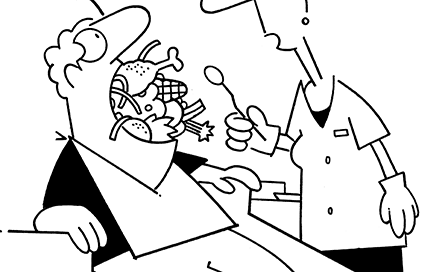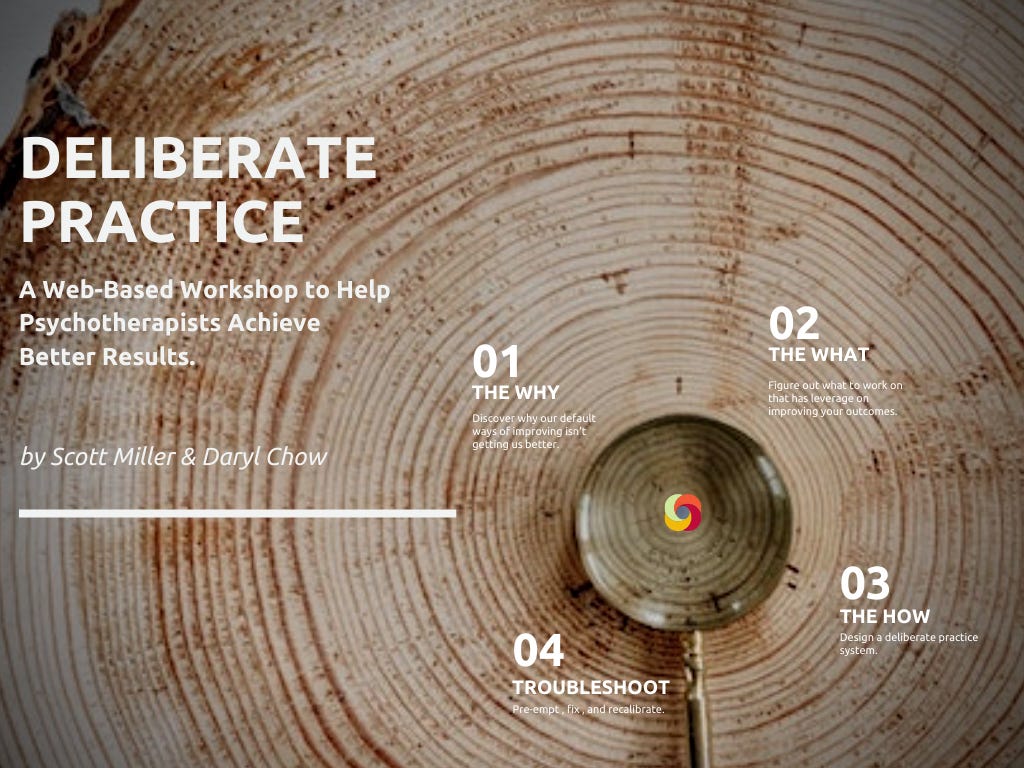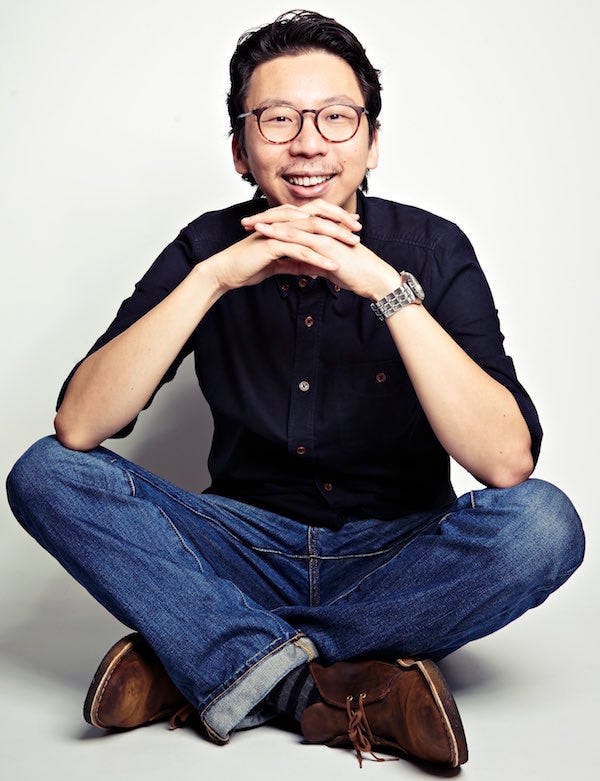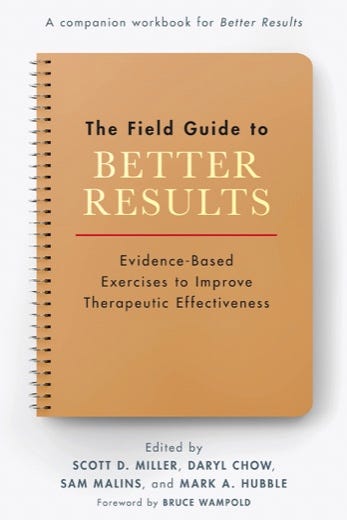Frontiers Friday #135. The Debate on Common Factors (Part III) ⭕️
Adversarial collaboration and the dignity of differences.
One of the biggest interpersonal challenges we face is to relate with people who hold different viewpoints from our own.
Think about your family members, friends/colleagues or clients who do not share the same beliefs, political perspective or even therapeutic approach. The challenge is real because, neither do we simply try to ignore the fact that there are different viewpoints embodied by two different people in the room, nor do we simply pander to the other, in the name of being all affirming.
How do we truly remain open? Are we willing to create spaces for conversations to unfold around the differences, and hold the reverence for other?
Perhaps one of the ways is to welcome what the late rabbi Jonathan Sacks called the “dignity of differences.” That is, rather than seeing differences as sources of division or conflict, valuing the differences as a well for deeper conversations can become more fruitful.
Perhaps what we need is ‘less conversions’, but more conversations.
It was with great delight to read a co-authored paper by two giants who have opposing views in their field of expertise in cognitive sciences and decision making. The article was titled, Conditions for Intuitive Expertise: A Failure to Disagree by Daniel Kahneman and Gary Klein.
More recently, Kahneman gave a lecture on Edge.org about the value of Adversarial Collaboration.
Kahneman said,
My most satisfying experience of adversarial collaboration was with Gary Klein, the intellectual leader of a community of applied psychologists who were pretty much united in their rejection of the work I have been involved with.”
“Intuition is sometimes marvelous and sometimes flawed. The question is when, what are the boundaries of the marvels and the flaws?”
“I invited Gary to explore the question of boundaries. This wasn't easy. It took us six or seven years to write a paper that was titled "A Failure to Disagree." To get that far, both of us had to overcome objections from our tribes. People didn't want us to collaborate, which was strange
Kahneman is well known for his work with Amos Tversky in the 1970’s, his book Thinking, Fast and Slow, and more recently, Noise, co-authored with Sibony and Sunstein. (I’m hoping to talk about this book in Frontiers Friday at some stage).
Klein, on the other hand, has done great work in the area of naturalistic decision making (NDM) and the role of intuition in expert decision making. He is known for his books like The Power of Intuition, and Seeing What Others Don’t.
As pointed out by Kahneman why working with people who have different viewpoints from you has value in the world of science.
Adversarial collaboration is an alternative to what I call "angry science.
Kahneman ended the talk with this:
I want to end with a quote from Barb Mellers, who said, "do not change minds, just open a little wider.
This is what dentists say when they're about to pull a tooth. And it is a good thing.
This week’s recommendations are tough going. Take this as a real-world exercise that you wished higher education training has taught you.
Read “Against”: An Article that disagrees with the common factors conjecture.
Read this paper from authors who have a different argument on the Dodo Bird verdict.
As you read it, note down your thoughts, and why you are thinking those thoughts.Read “For”: An article that argues for the common factors.
After reading the first article, read this (starting from page 9). And as you read this second article, notice how your mind shifts.
What are some of the arguments that really stand out?Read “For”: An Article that argues for the relative efficacy of bona-fide PTSD treatments.
To flip things around, now read a specific meta-analysis that argues for the direct comparison of bona-fide PTSD treatment.Read “Against: An article that questions the relative efficacy of bona-fide PTSD treatments
Finally, read this rebuttal to #3.
(It’s hard, isn’t it?)⏸ Words Worth Contemplating:
“When thinking changes your mind, that's philosophy. When God changes your mind, that's faith. When facts changes your mind, that's science.”
~ John Brockman, from the Edge book, What Have You Changed Your Mind About?(My addition: When you change your own mind, that's an opinion. When someone else changes your mind, that's love.)
Bonus:
“The best way to get a correct answer on the internet is to post an obviously wrong answer and wait for someone to correct you.”
~ Kevin Kelly.
Reflection
As a form of self-plagiarism, this was my thoughts around specific vs. non-speciifc ingredients in psychotherapy, written at a time when I was given a chance to meditate on these things for while during my prolonged dissertation.
There were early proponents who advocated that the distinction between specific and non-specific factors in psychotherapy was an arbitrary and unnecessary distinction (Butler & Strupp, 1986). Instead of focusing on disembodied distillation of specific “active ingredients” of psychotherapy, Butler and Strupp (1986) stressed the importance of a paradigm shift and move towards a contextual model of understanding, focusing on identifying primary principles of human interactional conditions between therapist and client that ultimately promote therapeutic change.
This does not mean that therapeutic models and techniques are unnecessary and that “anything goes” (Anderson, Lunnen, & Ogles, 2010). Rather, when a believable myth (i.e., approach, rationale) is delivered in a healing context by a practitioner who not only believes in its efficacy, but is also persuasive, establishes an emotionally charged and good therapeutic alliance, the practitioner is likely to be effective, especially when he or she finds a fit with the particular client’s preferences and worldview (Frank & Frank, 1993).
Stated differently, this ritualistic process of psychotherapy engages both the practitioner and client into a shared culture of healing (Fancher, 1995).
Announcements
The Deliberate Practice Web-Based Workshop is Back for the 6th Cohort!
It’s been almost a year since our last cohort… Scott Miller and I are now all set for our 6th cohort of the Deliberate Practice Web-Based Workshop, which kicks off on 22nd of May 2023.
You'd be sent practical content every Mondays and Fridays. during the 10-week period of the course.
Scott and I, and the rest of the community will be there walking through this deep learning journey.You can go at your own pace. Plus—this is a BIG PLUS—you'd have a LIFETIME ACCESS to the course. Yep, no monthly subscription fee.
Registration is now open to a limit of 40 participants. (Why limit? Well, it's hard to manage a bigger group and we would lose an intimate connection if it was any bigger a group.)
Start Date: 22nd of May 2023, 10-week program (cohort and self-paced) Registration Ends: 19th of May 2023.
USE THE FOLLOWING PROMO CODE AT THE CHECKOUT FOR AN EXCLUSIVE INSIDERS 20% OFF: DPVIP
(Click darylchowcourses.teachable.com/p/dpforb… to preview the course. We've made some modules free to preview).
Daryl Chow Ph.D. is the author of The First Kiss, co-author of Better Results, and The Write to Recovery, Creating Impact, and the forthcoming book The Field Guide to Better Results .







It’s said that Socrates would argue both sides of any subject & was able to present equally salient reasons for each side. This was one of the reasons he was called wise. In addition to the sources above, I’d also recommend Adam Grant’s book “Think Again: The Power of Knowing What You Don’t Know”. Daniel Kahneman said the following about it - "Brilliant... guaranteed to make you rethink your opinions and your most important decisions." We seem to be losing the capacity for respectful conversations which welcome heterodoxic views, which was the foundation of higher education.